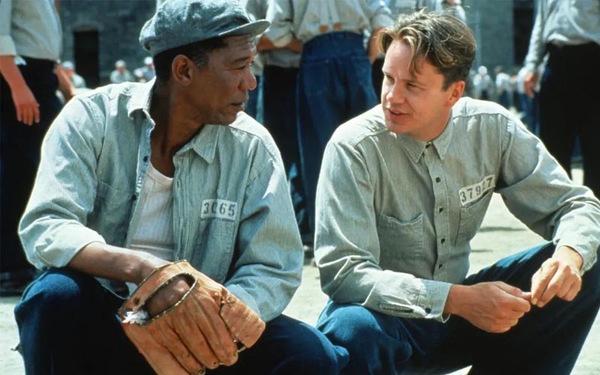The Shawshank Redemption: The Captive’s Reverie Of Freedom And Hope

- Aishwarya Damaraju
Film Companion
Last Updated: 11.32 AM, May 12, 2021
One could argue that The Shawshank Redemption is a deeply meditative mirror and an intense exploration of the very essence of freedom. But in the simplest sense, it is a poem of hope, a leap of faith, a song of liberation.
Freedom means different things to different people, but at the heart of it, it is the ability to love, think, feel and exist for oneself. To not be bound by rules and shackles. Only, in the Shawshank Prison, the shackles are real and not metaphorical. Red famously says, “Forty years I been asking permission to piss. I can’t squeeze a drop without say-so.”
But the walls also act as a deep metaphor for an intense journey, at the end of which lies triumph. When Andy is brought into to the Shawshank Prison, the Warden utters the well-known biblical lines, “Salvation lies within”, in a conversation with him. But it is also an early indication of the spiritual awakening soon to be undergone by Andy, and of his extraordinary story. Well encompassed in the other famous line, “Andy Dufresne, the man who crawled through 500 yards of shit and came out clean the other end.”
The walls of Shawshank are hardly the place for idealism, positivity or, of course, redemption. And yet, there is nothing ordinary about Andy, who is a dreamer, living a horrible nightmare. In fact, such is his faith, that he says to Red (words that have now been immortalised by cinephiles of different generations), “Remember, Red. Hope is a good thing… Maybe the best of things. And no good thing ever dies.” And that is the essence of this cinematic masterpiece: hope, the uncrushable human spirit, the resilience of a man wrongly framed for murder.
Whilst the prisoners are serving long sentences for horrible crimes they have been accused of, the viewer only witnesses true brutality watching the prisoners’ lives in chains. The inmates, in many ways, symbolise the stripping of an individual’s liberties and free will, and the forceful submission to the system one exists within. And Andy, when serving his time in prison, sees it all. Corruption, rape, death. And yet he decides to do something the other prisoners have never even considered: he decides to be free. After all, “Some birds aren’t meant to be caged. Their feathers are just too bright.” It is this extraordinary feat of Andy’s, of escaping his predicament, that one equates with true liberation, an end to conformity. Which is what makes the film a celebration of human triumph against all odds.
But while one can argue that The Shawshank Redemption is one of the greatest films ever made on breaking free, it is also one of the greatest films on friendship: how brotherhood is formed behind bars, how convicts are redeemed through the touch of love, how even the worst places in the world can bring a beautiful transformation inside the darkest hearts. And it is best encompassed by Andy’s parting note to the warden, hidden in the Holy Bible. “Dear Warden, you were right. Salvation lay within.”
The post The Shawshank Redemption: The Captive’s Reverie Of Freedom And Hope appeared first on Film Companion.

 Premium
Premium